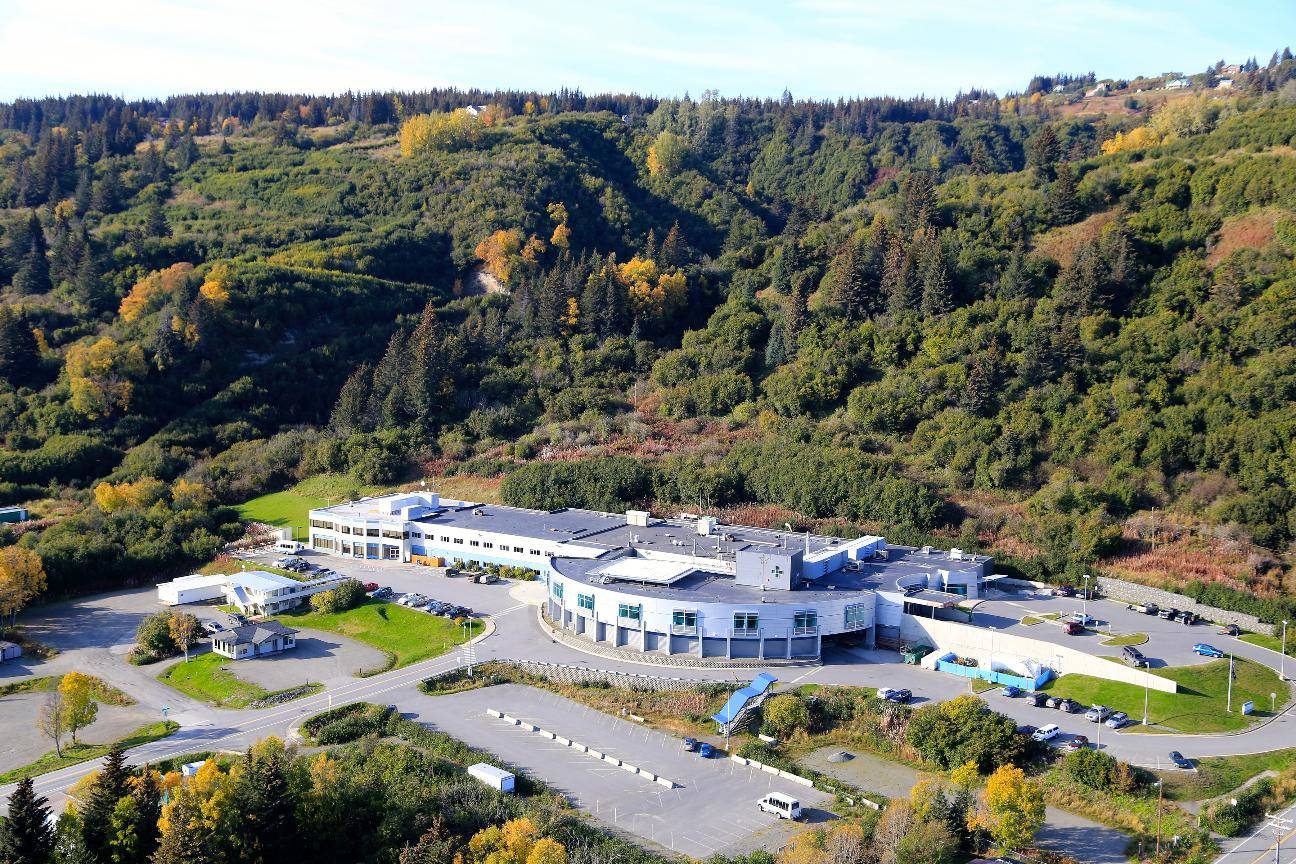Two proposals that would alter the boundaries of the South Kenai Peninsula Hospital Service Area have made it onto the ballot this October.
The Kenai Peninsula Borough Assembly voted Tuesday to approve two separate proposals to deal with the boundary issue, which has been debated for years. Several assembly members have attempted over the years to get the northern boundary of the South Peninsula Hospital service area moved south, arguing that people living in the Clam Gulch and Ninilchik areas are more likely to use the Central Peninsula Hospital and therefore should not have to pay the 2.3 mills in taxes to South Peninsula Hospital.
Dale Bagley, the sponsor of the original ordinance behind the latest push to move the boundary, calls it a fairness issue.
Bagley originally proposed moving the boundary line south of Ninilchik, effectively expanding Central Peninsula Hospital’s service area that far south. Lower peninsula residents, representatives of South Peninsula Hospital and assembly members Willy Dunne and Kelly Cooper pushed back against this proposal, as it would mean the hospital would lose hundreds of thousands of dollars in property tax revenue. Residents in the Central Kenai Peninsula Hospital Service Area pay a mill rate of 0.01 mills. Dunne and Cooper explained at a public hearing at Homer City Hall last Wednesday that this is because CPH is a self-sustaining hospital which keeps the small mill rate on the books to pay for insurance and audits.
Moving the boundary south of Ninilchik would also have put into question the ability of South Peninsula Hospital to continue providing services for the Ninilchik Community Clinic.
After significant push back, the assembly amended that proposal to move the boundary between the two hospital service areas to roughly Barbara Drive in Ninilchik, which is still south of its current position, but keeps the Ninilchik Community Clinic in the South Peninsula Hospital service area.
Only those in the Central Peninsula Hospital service area and in the approximately 15 miles that would stand to be included in it if the boundary is moved will be able to vote on that boundary line move.
To accommodate the revenue loss Homer’s hospital will experience from this move, a second proposal was crafted to include moving the boundary of the South Peninsula Hospital service area south to include communities on the other side of Kachemak Bay outside the city of Seldovia. Only those in the current service area and those across the bay who stand to be included will be able to vote on this proposal.
According to a fiscal impact statement from the borough finance department, if residents on the other side of Kachemak Bay are included in the service area, they will pay 1.13 mills to the service area as opposed to the 2.3 that residents on the north side pay, because they will not be taking on the bond indebtedness that lower peninsula voters previously approved.
“The existing line came through somewhere near China Poot,” Bagley said. “And China Poot, Halibut Cove (and) Bear Cove (were) already paying (into the service area). But from there over to Nanwalek, Port Graham, Seldovia — the area outside of the city limits of … Seldovia would be included in this boundary.”
As Borough Attorney Collete Thompson explained during the hearing, there are four possible outcomes of the vote in October: Voters approve both proposals and both boundary lines move; voters shoot down both proposals, and all boundary lines remain the same as they are now; voters approve moving the South Peninsula Hospital boundary line south to Barbara Drive in Ninilchik, extending the Central Peninsula Hospital service area south, but don’t approve moving the South Peninsula Hospital service area boundary across the bay; or voters do not approve moving the boundary line to Ninilchik but do vote to approve moving it across Kachemak Bay.
Only two people from the lower Kenai Peninsula made comments at the public hearing. One of them was Derotha Ferraro, director of marketing and public relations for South Peninsula Hospital. She said the amendment to include those across the bay will essentially be a revenue neutral change for the hospital.
“The hospital appreciates the compromise, especially to address most of the concerns that the contractor of the hospital had with the original ordinance, especially (that) our relationship with Ninilchik was preserved, so that is very much appreciated,” Ferarro said.
One aspect of the proposals discussed at the meeting is the fact that some people will be voting on both boundary line moves if they make it on the ballot. Those people in the 15-mile area that would change from the South Peninsula Hospital service area to the Central Peninsula Hospital service area if the boundary is moved to Barbara Drive will get to vote on whether to make that change, but also on whether to expand the southern service area across the bay. Thompson explained this is because both votes will be happening at the same time, so those people will still be members of the southern service area when they vote, and therefore eligible to vote on the Kachemak Bay boundary move. Cooper wondered whether this would be proper, seeing as those people would no longer be members of the South Peninsula Hospital service area if the northern boundary line is approved to move south.
Dunne asked about the possibility of holding the two votes separately, in order to give both a better chance of passing so that the South Peninsula Hospital service area boundary would move across the bay and therefore ensure the hospital would not lose revenue. Ultimately, he said he didn’t want to drag the process out any longer, and dropped the idea.
Reach Megan Pacer at mpacer@homernews.com.


